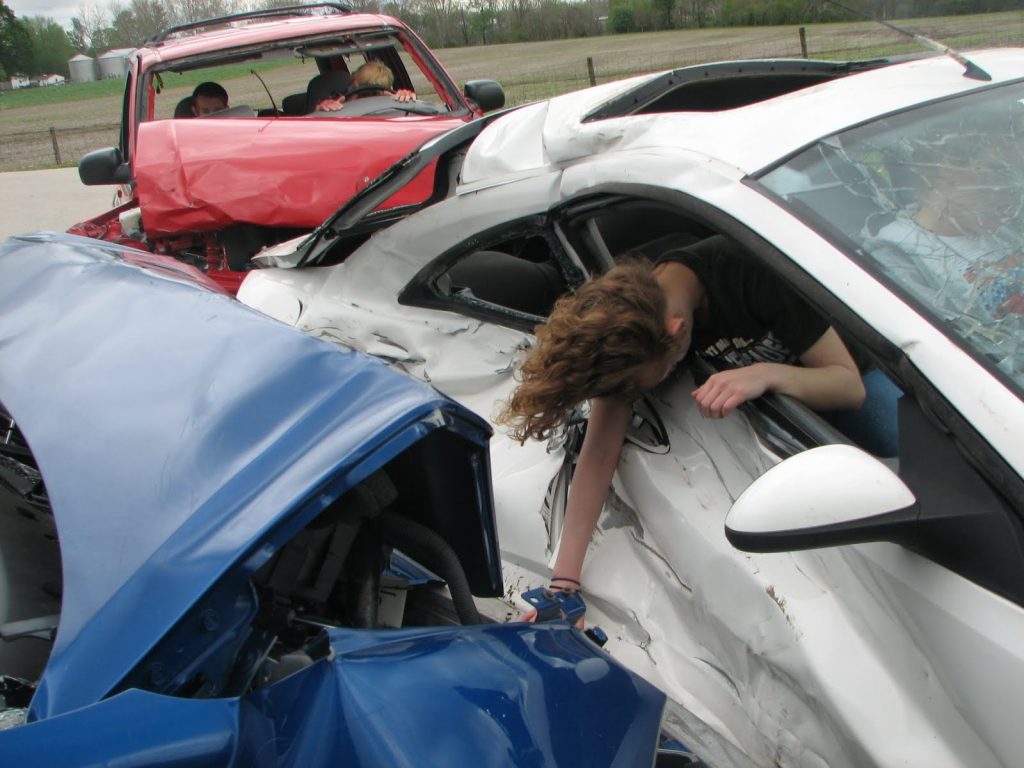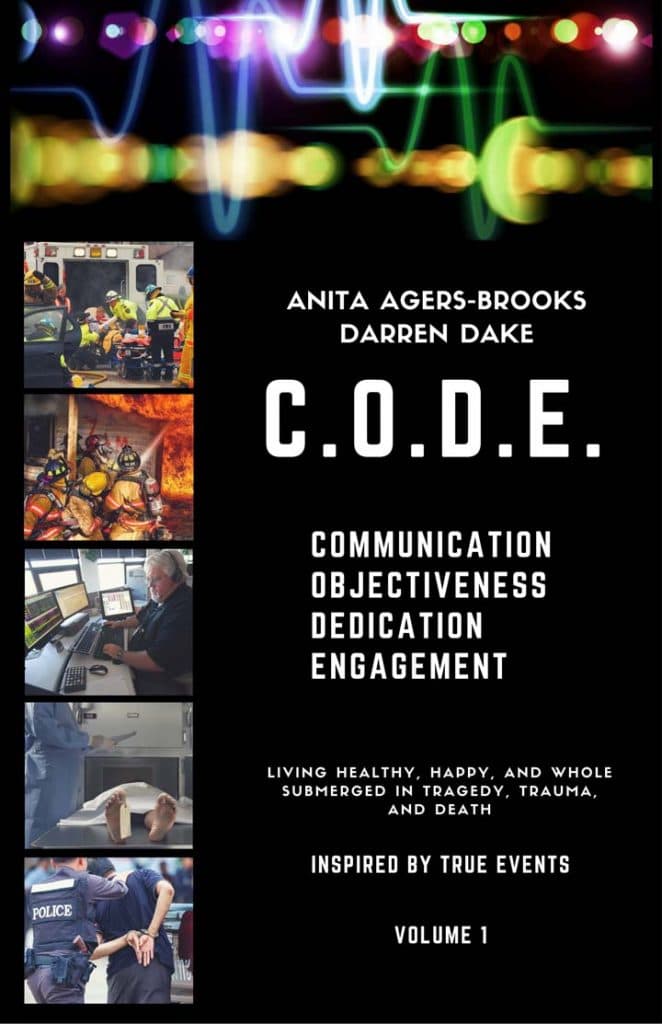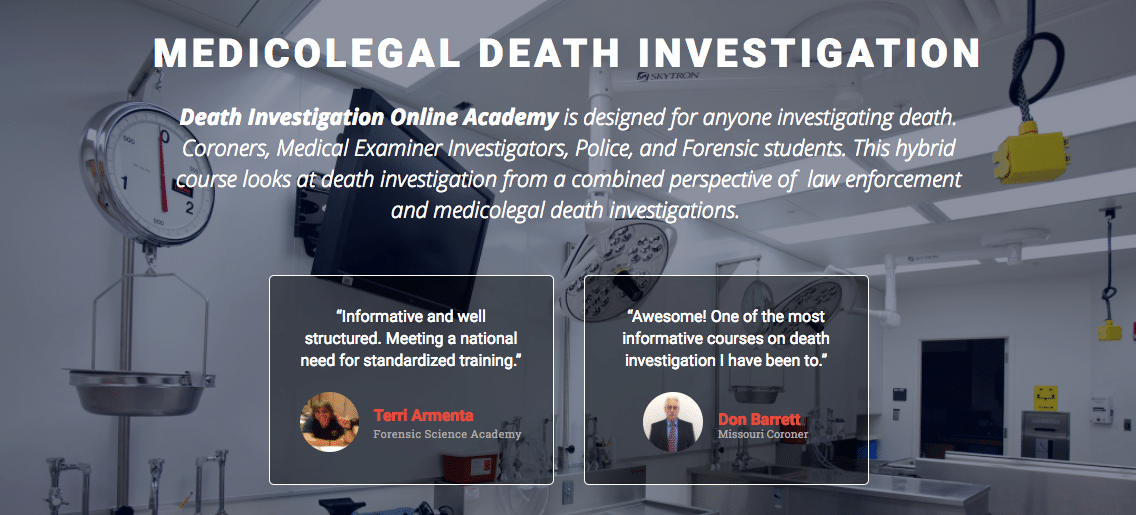 Excerpt from C.OD.E (A Real Story)
Excerpt from C.OD.E (A Real Story)
Josie answered the familiar notes of an incoming call. “9-1-1. What is your emergency?”
“Accident. I need help. There’s been an accident.”
“Okay sir, stay calm. Are you hurt? Were you in the accident?”
“No ma’am. I just drove up on it. Looks like it just happened. Single car. It looks like it drove right off the highway and plowed into a tree. I don’t see skid marks or anything.”
Josie typed as the man provided details, dispatching fire, ambulance, and law enforcement. “Can you tell if anyone is in the vehicle, sir?”
The man huffed as he spoke, indicating movement. “I’m walking up to it now.”
“What’s your location, sir?”
“I’m on Highway 49, about four miles out of Maddox.”
Josie didn’t have to pull up the map. Maddox was her own hometown suburb, small enough where almost everybody knew everybody, and the headquarters for their county’s 9-1-1 dispatch office. This caller was about four miles from where Josie sat right then. Her heart sped up.
Suddenly, the caller half gasped and half cried. “Oh no. O God. How awful.”
“Sir? What’s happening, sir?” Josie spoke silently to herself. Please don’t let it be any of my family or close friends.
The man spoke through tears, “It’s a girl. She looks young.”
A single, loud sob heaved across the phone line. Then, under weighted breaths he continued, “She’s torn up. Bad. Oh man. I think she might be dead. She’s not moving and there’s blood everywhere. She has blonde hair, but right now, most of it’s dripping with red.”
For a split moment, Josie’s imagination tried to take over her mind. Is it someone I know? My niece, Stephie just got her license and she’s a blonde.
Josie took an intentional deep breath and admonished herself. Stop. Get a grip. Stay focused on the job. “Okay sir, I know this is difficult, but I need you to hold it together. Help is on the way.”
“Tell them to hurry. Except I’m afraid it’s too late for her.”
Josie forced herself to maintain a professional composure, though adrenalin flooded her veins and her blood pressure pumped more powerfully than it did during most calls. Something about this one felt different. And it was more than location, something in Josie’s gut told her she wasn’t going to like the outcome. She would soon find out her gut was absolutely right.
The caller hung up after the first responders arrived on scene, but the tension in the air of the 9-1-1 office did not dissipate. Across squawking radios, it was evident in all of the voices attending the accident; county deputies, state highway patrol, and EMS, something wasn’t being said. There was a vibe that said there was something uniquely wrong. Moments like this made the physical disconnect between 9-1-1 and those who worked directly with victims feel like a punch in the stomach. Josie wished she could know exactly what was going on.
It would take over an hour before she found out why everyone seemed exceptionally on edge. Sergeant Troy Matthews walked into the office, his face so low it appeared as if his chin might drag the ground.
Sergeant Matthews made his way directly to Josie. “You took the call about the girl out on 49?”
Tears pooled in Josie’s eyes. “Yes.”
Troy, whose own eyes glistened, placed his hand on Josie’s shoulder.”It was Mandy Sellers’ daughter, Bella.”
Josie raised out of her chair instinctively, “What? No. Not Bella! She—we— all of us loved. . . .”
“I know,” Troy broke in. “It was like she belonged to all of us, like she was our own daughter.”
Josie fell back onto the seat, Mandy was a well-respected sheriff’s deputy who had been on the force for over fifteen years. “I—we. We practically raised her with Mandy. After she started school, she came every day when they let out. In the summer, she ran and got us lunch, or on really hot days, a small vanilla cone for both of us. From the time she was a little thing, she had been a bright light and energizing force that lifted our spirits on mundane or difficult days. We all looked forward to her visits, I can’t imagine her not bouncing through the door.”
Troy nodded his head in agreement. “I know what you mean. Her innocence made you remember the good in this world — something it’s easy to forget in this line of work.”
The 9-1-1 line lit up requiring Josie’s immediate attention. In that instant, Josie knew the expectation. Turn your feelings off and turn the calm on. She had no choice but to delay her grief until later.
But one thought disturbed Josie the most as she turned to take the call. How did Bella die?
Josie shoveled her emotions deep into the recesses of her soul and pushed past her thoughts to make it through the rest of her shift. It was when she climbed into her car that everything bubbled up and washed over her. Right before leaving, Josie’s supervisor told her how the accident had happened. Bella’s eyes must have left the road — she likely veered off while typing the unfinished text they found on her phone.
Josie clutched the steering wheel, unable to make her hand turn the ignition to start her car. Her sobs ricocheted off the interior windows and dashboard, her own cries pelting her ears.
After several minutes, Josie transitioned to hiccups. She shouted through them at the roof.“Why Bella? Honey, we talked about texting and driving so many times. I know your mom had those conversations with you too. You promised.” Josie dropped her chin toward her chest and whispered, “You promised.”
A somber cloud hung over the community in the weeks following Bella’s death. But for Josie and her 9-1-1 teammates, as well as local ambulance and fire crews, plus city, county, and many state law enforcement officers, the gray cloud refused to blow away so quickly.
Though everyone struggled to screw on a mask of normalcy, no one could bear its heavy weight for long periods of time. When one slipped, sadness, anger, or denial would spill from the person, causing an awkwardness to fill the room — yet few would talk about it. Instead, everyone ducked their heads and tried to pretend the slip never occurred. Mostly, no one mentioned Bella’s name.
Sometimes, Josie pondered why they all avoided talking about the beautiful young ray of light was extinguished too soon. She guessed that everyone wrestled with the same confusing emotions she did.
Many days, Josie denied her anger at Bella for doing one of the most dangerous things she was warned against. Sadness crept in when Josie imagined all of the things Bella might have done with her life if she’d lived. But the most painful occurred when Josie forgot Bella was gone, glanced at the clock, and momentarily thought she would breeze in the door just to say hi.
Josie always adapted and resolved to make it through her shift, but there were a handful of instances when she had to take a bathroom break, so she could have another solid cry. She often longed to talk to someone, but few seemed willing and no professional help was offered. Josie coped the only way she knew how. She swallowed her grief, hoping it would eventually go away — and in some form it did. Temporarily.
Eight years later, after the umpteenth time of driving past Bella’s crash site, triggered by vivid imaginings of those horrific final moments, Josie finally woke up. She realized there was a pattern to her bouts of insomnia, nightmares, anxiety attacks, and erratic eating. She needed professional help.
Josie gave herself permission to seek out a grief counselor, and began weekly sessions. Ready to heal, she made rapid progress, and the counselor soon shifted Josie to monthly visits. Within six months, she felt like a new person and felt she had processed the unresolved grief she’d tried to avoid for so long.
The sun hung low on a warm summer evening when Josie sat at the foot of Bella’s grave. She held two small vanilla cones in her hands, symbols of a special bond and a sign of Josie’s forgiveness. After finally asking for help, Josie was able to let go.
Profiling Josie’s Reactions
The fact that Josie’s painful memories surfaced weeks, months, or years after experiencing a loss or traumatic event, is actually normal. If you think of people as being like volcanoes, and human feelings like magma, you can see how pushing emotional pain down builds pressure that at some point, must escape.
If you don’t intentionally find healthy vents to release steams of anger, sadness, frustration, grief, etc., at some point, you can expect an emotional explosion. Sadly, these eruptions often happen at an inopportune time. Intentionality is the key to protecting yourself and others from the damage of painful experiences on the job.
Questions to Consider
- What symptoms did Josie have that mirror Post Traumatic Stress Disorder?
- How might Josie and her colleagues have supported each other and strengthened their departmental work in the process?
- Where could Josie have turned to work through her grief sooner?
C.O.D.E. Conduct
Communication — Many counselors say grief is what you feel inside, and mourning is the outward expression of grief. In order to truly heal from loss or trauma, you must both grieve and mourn. Share your emotions by talking with a safe person you can trust.
Objectiveness — If you find you are often emotionally triggered by environment, scent, sounds, or other connections to past events, allow yourself to face and deal with the origin of that pain. Are you struggling to sleep at night? Eating poorly? Lethargic? Anxious? Try to view yourself as an outsider might, or pretend these things are happening to someone close to you. What kind of advice would you give them? Now take it yourself.
Dedication — Memorializing a loss through volunteerism or founding a social cause can provide a sense of purpose born from the pain. Dedicating time and energy for the benefit of others takes nothing away from the person(s) who are gone, but can honor them and keep their memory alive indefinitely.
Engagement — Participate in conversations and activities that honor the dead. Don’t run from reminders or avoid sharing grief. Openness helps us heal faster and more deeply. Don’t let a loss stop you from connecting to other people. We all need someone. If you feel like you don’t, that’s a waving red flag pointing to the likelihood of a past that’s holding you hostage.
Medicolegal Death Investigation – Online Academy
Medicolegal Death Investigation Scene Kit

The Death Investigation Training Academy was founded to play an integral role in the death investigation community. The need for quality accredited training is in short supply and high demand. Using a combination of classroom training, live on site scenario exercises, and web-based training, the Death Investigation Training Academy is filling the need of 21st-century investigators.




 This exclusive first of its kind Medicolegal Death Investigation (MLDI) kit contains all the items you need to document and collect evidence from the most important piece of evidence at any death scene – The Body. Designed for Coroners, Medical Examiner Investigators, and anyone responsible to investigate and process a death.
This exclusive first of its kind Medicolegal Death Investigation (MLDI) kit contains all the items you need to document and collect evidence from the most important piece of evidence at any death scene – The Body. Designed for Coroners, Medical Examiner Investigators, and anyone responsible to investigate and process a death.